
Mwanjelwa: The Heartbeat of Mbeya
Mwanjelwa, a bustling neighborhood located in the vibrant city of Mbeya, Tanzania, offers tourists an authentic taste of local life mixed with modern conveniences. Known for its lively markets and friendly locals, Mwanjelwa stands out as a destination where tradition meets the contemporary. Whether you are a fan of local cuisine, shopping, or cultural experiences, Mwanjelwa has something for every traveler. The Mwanjelwa Market is a must-see, brimming with fresh produce, handmade crafts, and a variety of goods that provide a window into the daily lives of Mbeya's residents. Visiting the market is an experience in itself, with its colorful stalls and the symphony of vendors calling out their wares. Here, you can find everything from exotic fruits to traditional fabrics, making it an ideal spot for picking up unique souvenirs. For those interested in history and culture, Mwanjelwa offers several landmarks and points of interest. The neighborhood is home to a number of churches and mosques, each with its own unique architectural style, reflecting the diverse religious community of the area. Additionally, the local cuisine is a highlight, with numerous street food vendors offering delicious Tanzanian dishes such as Ugali, Nyama Choma, and fresh fish from nearby lakes. Restaurants and cafes in Mwanjelwa also cater to various tastes, ensuring that every meal is a memorable part of your journey. With its mix of old-world charm and new-age vibrancy, Mwanjelwa is more than just a neighborhood; it's an essential part of the Mbeya experience. Whether you're here for a day or planning a longer stay, this lively area promises to leave you with lasting memories and a deeper appreciation for Tanzanian culture.
Local tips in Mwanjelwa
- Visit the Mwanjelwa Market early in the morning for the freshest produce and the best shopping experience.
- Wear comfortable shoes for walking, as the streets can be quite busy and uneven.
- Try the local street food but ensure it's from a vendor with a good reputation to avoid any health issues.
- Carry some cash, as not all vendors accept credit cards.
- Respect local customs, especially when visiting religious sites. Dress modestly and ask for permission before taking photos.
Mwanjelwa: The Heartbeat of Mbeya
Mwanjelwa, a bustling neighborhood located in the vibrant city of Mbeya, Tanzania, offers tourists an authentic taste of local life mixed with modern conveniences. Known for its lively markets and friendly locals, Mwanjelwa stands out as a destination where tradition meets the contemporary. Whether you are a fan of local cuisine, shopping, or cultural experiences, Mwanjelwa has something for every traveler. The Mwanjelwa Market is a must-see, brimming with fresh produce, handmade crafts, and a variety of goods that provide a window into the daily lives of Mbeya's residents. Visiting the market is an experience in itself, with its colorful stalls and the symphony of vendors calling out their wares. Here, you can find everything from exotic fruits to traditional fabrics, making it an ideal spot for picking up unique souvenirs. For those interested in history and culture, Mwanjelwa offers several landmarks and points of interest. The neighborhood is home to a number of churches and mosques, each with its own unique architectural style, reflecting the diverse religious community of the area. Additionally, the local cuisine is a highlight, with numerous street food vendors offering delicious Tanzanian dishes such as Ugali, Nyama Choma, and fresh fish from nearby lakes. Restaurants and cafes in Mwanjelwa also cater to various tastes, ensuring that every meal is a memorable part of your journey. With its mix of old-world charm and new-age vibrancy, Mwanjelwa is more than just a neighborhood; it's an essential part of the Mbeya experience. Whether you're here for a day or planning a longer stay, this lively area promises to leave you with lasting memories and a deeper appreciation for Tanzanian culture.
Iconic landmarks you can’t miss
Oback Store
Explore the vibrant Oback Store in Mbeya for an authentic market experience filled with fresh produce, local crafts, and a taste of Tanzanian culture.
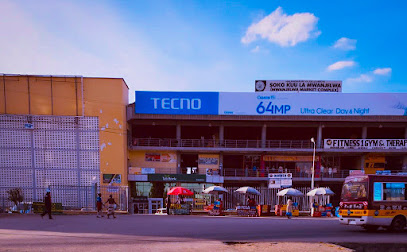
Mzumbe Garden
Explore the serene beauty of Mzumbe Garden in Mbeya, Tanzania – a tranquil retreat filled with lush greenery and vibrant floral displays.
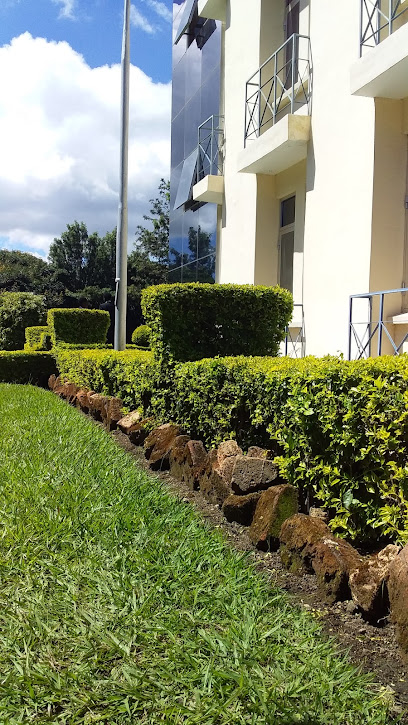
The Great Rift Valley View Point
Discover the stunning Great Rift Valley View Point in Mbeya, where breathtaking landscapes and geological wonders await every visitor.
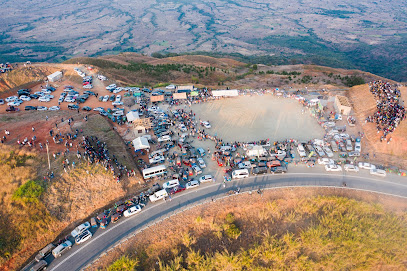
Chunya Road View Point
Explore the breathtaking Chunya Road View Point in Mbeya, Tanzania, where stunning vistas and serene nature await every visitor.
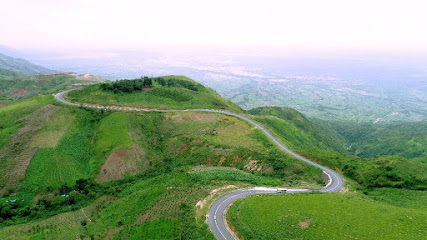
Mwanjelwa Bus Stop
Discover the vibrant atmosphere of Mwanjelwa Bus Stop, a cultural hub in Mbeya offering a glimpse into local life and transit experiences.
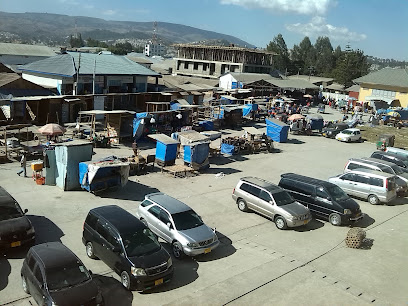
Mwanjelwa
Discover tranquility at Mwanjelwa Cemetery in Mbeya, Tanzania, where history meets serene beauty in a cultural reflection.
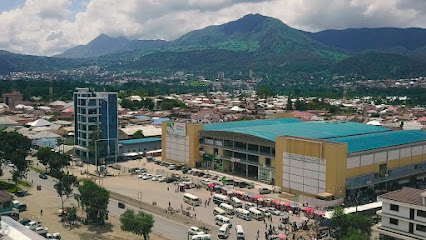
Mwanjelwa Parish
Discover the serene spirituality of Mwanjelwa Parish in Mbeya, a cultural gem offering rich traditions and a welcoming community atmosphere.
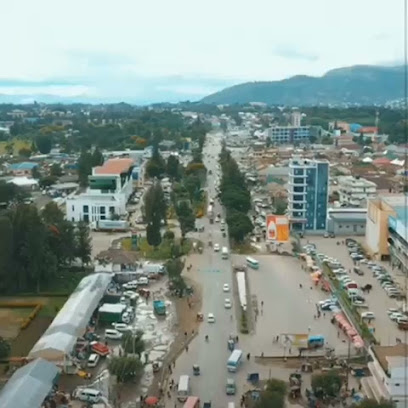
Visit mbeya
Discover the enchanting beauty and rich culture of Mbeya, Tanzania's gateway to stunning landscapes and vibrant local experiences.
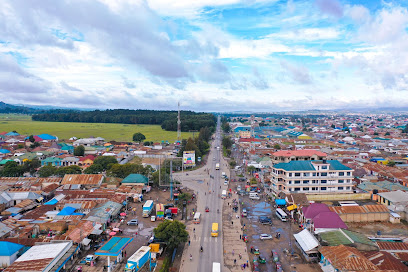
Mnara Wa Mwenge
Explore the rich history and cultural significance of Mnara Wa Mwenge in Mbeya, a landmark honoring Tanzania's heroes.

mbeya best picture
Discover the vibrant art scene of Mbeya at the Best Picture Gallery, a cultural haven showcasing local and international masterpieces.

Essential places to dine
501 Soul Food
Experience authentic Tanzanian cuisine at 501 Soul Food in Mbeya City—where every bite tells a story of rich flavors and local tradition.
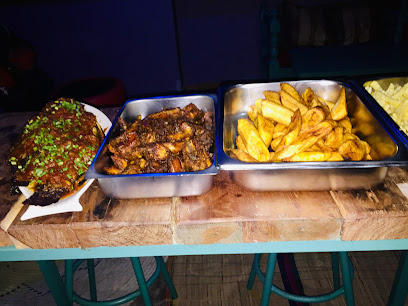
Sombrero Restaurant
Discover the flavors of Tanzania at Sombrero Restaurant in Mbeya - where local cuisine meets international taste.
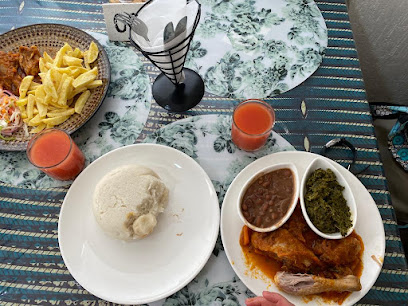
Restaurant (Indian & Chinese)
Discover a unique blend of Indian and Chinese cuisine in Mbeya's vibrant dining scene, perfect for food lovers seeking diverse flavors.
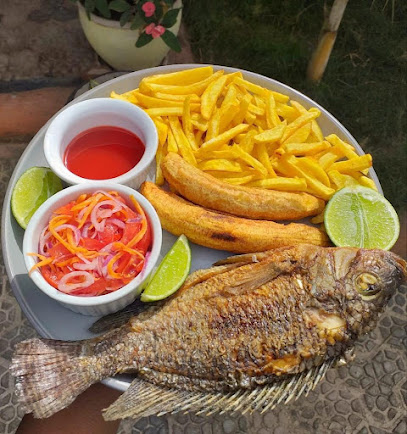
Usungilo Restaurant
Experience the rich flavors of Tanzania at Usungilo Restaurant in Mbeya, where authentic African cuisine meets warm hospitality.
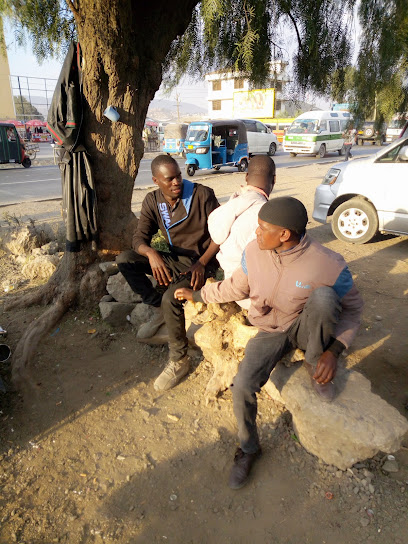
Restaurant at Holiday Lodge
Discover authentic Tanzanian flavors at the Restaurant at Holiday Lodge in Mbeya - where delicious cuisine meets warm hospitality.
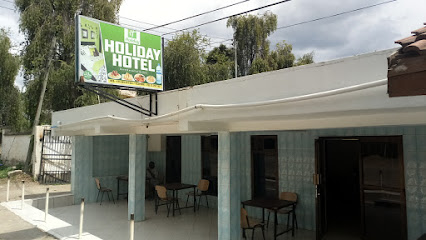
Mambeu's Restaurant
Discover authentic Tanzanian flavors at Mambeu's Restaurant in Mbeya – where every meal tells a story.
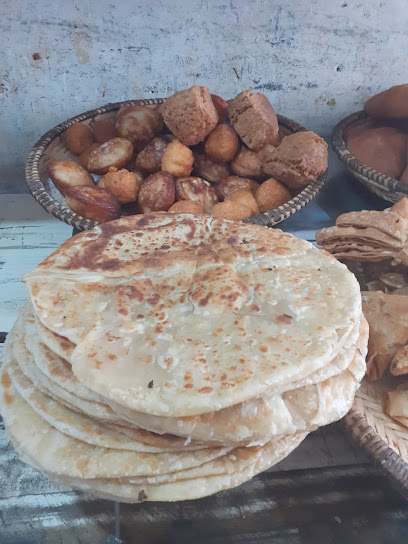
The Griller'z Pork Nation
Discover authentic Tanzanian cuisine at The Griller'z Pork Nation in Mbeya – a haven for pork lovers seeking delightful flavors.
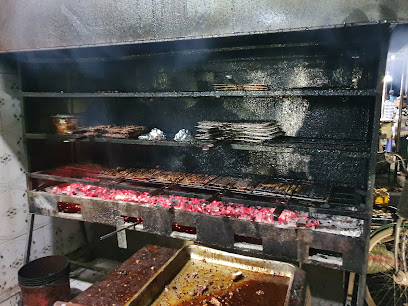
Kitu Kimoja Fast Food
Experience authentic Tanzanian cuisine at Kitu Kimoja Fast Food in Mbeya - where local flavors meet fast food favorites.
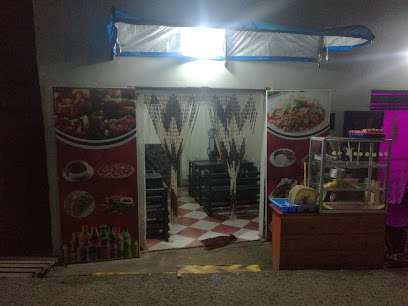
Fair play restaurant
Experience authentic Tanzanian flavors at Fair Play Restaurant in Mbeya's Market Square - where every meal tells a story.
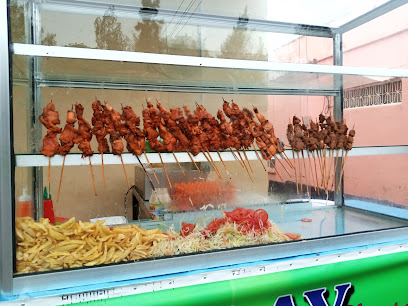
Good Choice Restaurant
Experience authentic Tanzanian cuisine at Good Choice Restaurant in Mbeya – a culinary gem offering delightful flavors and vibrant atmosphere.
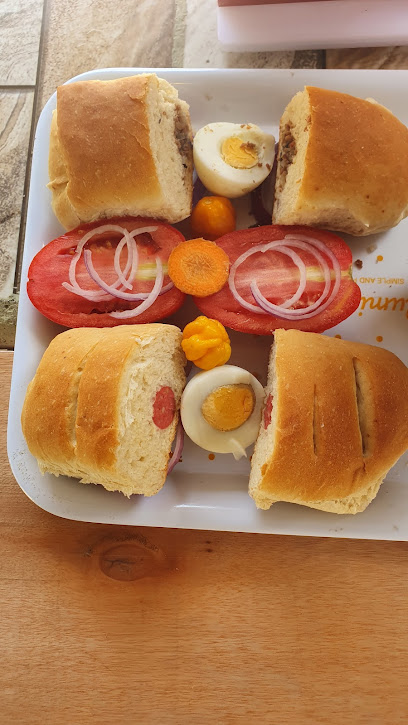
Markets, malls and hidden boutiques
ALESA Scents & Clothing
Experience the essence of Mbeya with unique perfumes and stylish second-hand clothing at Alesa Scents & Clothing.
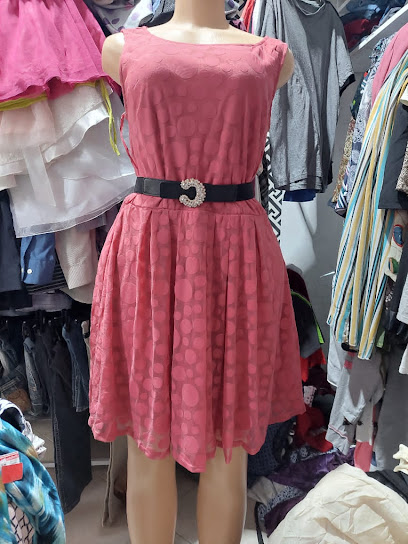
MANGI HOME SHOPPING
Explore the essence of Tanzanian culture at Mangi Home Shopping, where unique home goods and local craftsmanship await.
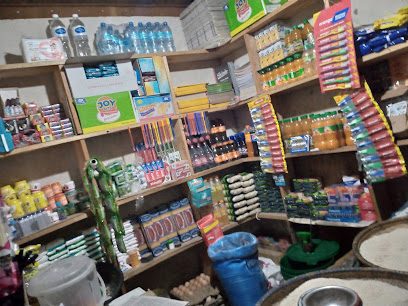
KIGANJANI STORE MBEYA
Explore Kiganjani Store in Mbeya for the latest mobile devices and accessories, ensuring you're connected while experiencing the beauty of Tanzania.
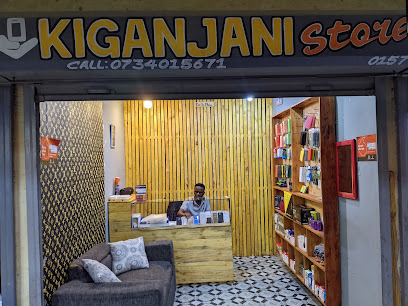
GEE COLLECTION STORE home of quality & latest woman fashion
Explore the latest women's fashion trends at GEE Collection Store in Mbeya, where quality meets style in a vibrant shopping experience.
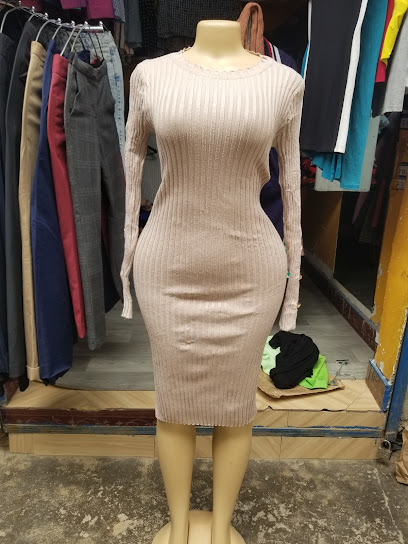
MAGEGE
Discover the vibrant shopping experience at Magege in Mbeya, where local craftsmanship meets everyday essentials in a colorful market atmosphere.

Ezekiel
Explore the vibrant fashion of Tanzania at Ezekiel, a clothing store in Mbeya offering unique designs and quality garments.

7 Stars
Experience local culture and shop for unique products at 7 Stars, a charming general store in the heart of Mbeya.

Lightness Shop
Explore vibrant styles and local fashion at Lightness Shop, a unique clothing destination in Mbeya, Tanzania, perfect for every traveler.

wedding & electronics
Explore the Wedding & Electronics store in Mbeya, where your wedding dreams come to life with exquisite attire and essential gadgets for your big day.

Vemac shop
Explore Vemac Shop in Mbeya for fresh groceries and local snacks, capturing the essence of Tanzanian culture in every aisle.
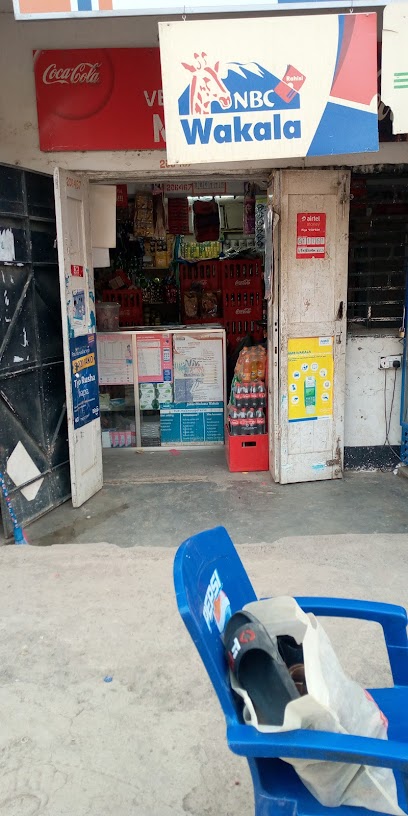
Essential bars & hidden hideouts
Mbeya Carnival Bar
Dive into the vibrant nightlife of Mbeya at the Carnival Bar, where music, drinks, and a lively atmosphere await every visitor.
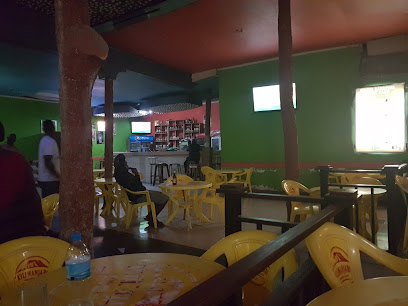
Polos Cocktail Bar (Mbeya)
Discover the vibrant nightlife of Mbeya at Polos Cocktail Bar, where exceptional cocktails meet stunning city views.
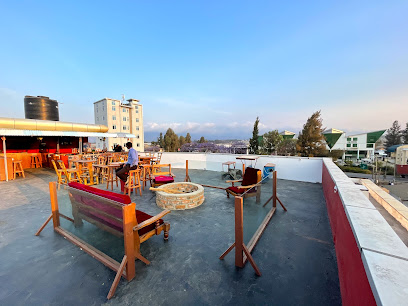
Vamponji Bar & Lodge
Discover the vibrant atmosphere and local flavors at Vamponji Bar & Lodge in Mbeya, a must-visit destination for tourists exploring Tanzania.
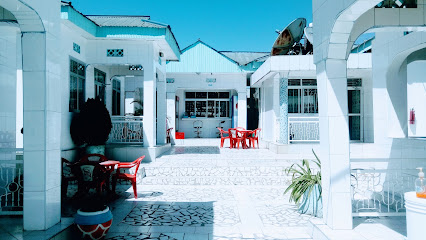
Iwawa Bar
Experience the vibrant local culture at Iwawa Bar in Mbeya - the ultimate spot for relaxation and authentic Tanzanian drinks.

Hook Up Pub And Kitchen
Discover the lively ambiance and diverse drink offerings at Hook Up Pub And Kitchen, the heart of nightlife in Mbeya's Soweto.
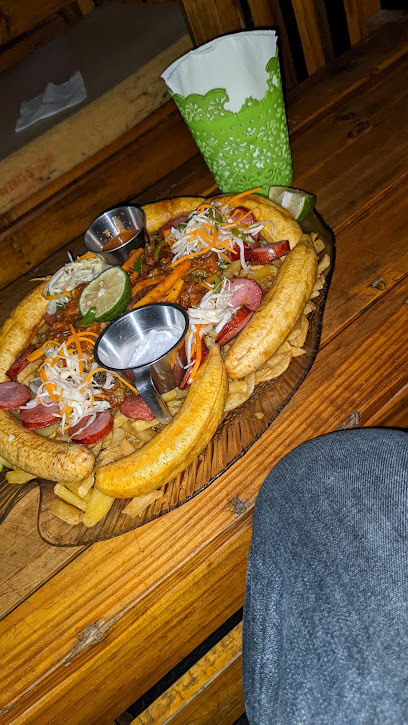
Vamponji Bar
Discover the vibrant nightlife of Mbeya at Vamponji Bar, a lively spot for drinks, music, and a taste of local culture.
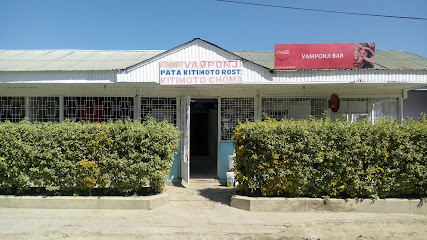
Anna min bar
Discover the vibrant nightlife at Anna min Bar in Mbeya – a perfect blend of local culture and refreshing drinks.
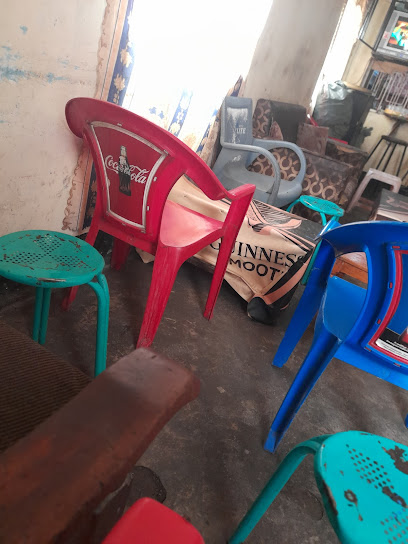
Raja Pub
Experience the vibrant nightlife of Mbeya at Raja Pub, where locals gather for drinks, laughter, and good times in an inviting atmosphere.
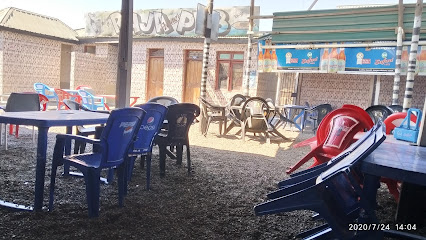
MIDLIFE PUB & LODGE
Experience the vibrant local culture at Midlife Pub & Lodge, a cozy bar in Mbeya perfect for relaxation and socializing with great drinks.

MAMA KAKA PUB
Discover the vibrant atmosphere of Mama Kaka Pub in Mbeya, offering a diverse drink selection and a taste of local nightlife.
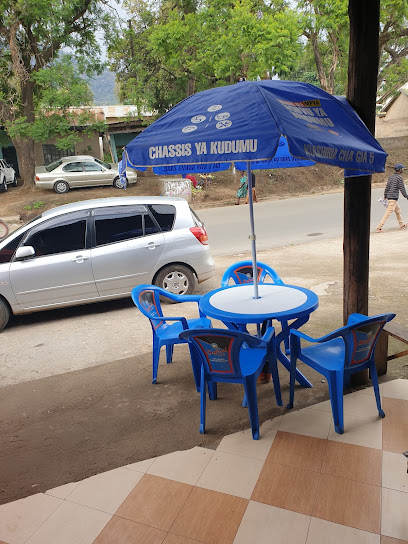
Local Phrases
-
- HelloJambo
[jahm-boh] - GoodbyeKwaheri
[kwah-heh-ree] - YesNdio
[n-dee-oh] - NoHapana
[hah-pah-nah] - Please/You're welcomeTafadhali
[ta-fah-dah-lee] - Thank youAsante
[ah-sahn-teh] - Excuse me/SorrySamahani
[sah-mah-hah-nee] - How are you?U hali gani?
[oo hah-lee gah-nee] - Fine. And you?Nzuri. Na wewe?
[n-zoo-ree. nah weh-weh] - Do you speak English?Unazungumza Kiingereza?
[oo-nah-zoo-ngoom-zah kee-een-geh-reh-zah] - I don't understandSielewi
[see-leh-wee]
- HelloJambo
-
- I'd like to see the menu, pleaseNingependa kuona orodha, tafadhali
[nee-ngeh-pehn-dah koo-oh-nah oh-roh-dhah, tah-fah-dah-lee] - I don't eat meatSi kula nyama
[see koo-lah nyah-mah] - Cheers!Mambo!
[mahm-boh] - I would like to pay, pleaseNingependa kulipa, tafadhali
[nee-ngeh-pehn-dah koo-lee-pah, tah-fah-dah-lee]
- I'd like to see the menu, pleaseNingependa kuona orodha, tafadhali
-
- Help!Msaada!
[msah-ah-dah] - Go away!Ondoka!
[ohn-doh-kah] - Call the Police!Piga polisi!
[pee-gah poh-lee-see] - Call a doctor!Piga daktari!
[pee-gah dahk-tah-ree] - I'm lostNimepotea
[nee-meh-poh-teh-ah] - I'm illNinaumwa
[nee-nah-oom-wah]
- Help!Msaada!
-
- I'd like to buy...Ningependa kununua...
[nee-ngeh-pehn-dah koo-noo-noo-ah] - I'm just lookingNinatazama tu
[nee-nah-tah-zah-mah too] - How much is it?Bei ni kiasi gani?
[beh-ee nee kee-ah-see gah-nee] - That's too expensiveHiyo ni ghali sana
[hee-yoh nee ghah-lee sah-nah] - Can you lower the price?Unaweza kupunguza bei?
[oo-nah-weh-zah koo-poon-goo-zah beh-ee]
- I'd like to buy...Ningependa kununua...
-
- What time is it?Ni saa ngapi?
[nee sah-ah ngah-pee] - It's one o'clockNi saa moja
[nee sah-ah moh-jah] - Half past (10)Nusu kumi
[noo-soo koo-mee] - MorningAsubuhi
[ah-soo-boo-hee] - AfternoonMchana
[m-chah-nah] - EveningJioni
[joh-ee-nee] - YesterdayJana
[jah-nah] - TodayLeo
[leh-oh] - TomorrowKesho
[keh-shoh] - 1Moja
[moh-jah] - 2Mbili
[m-bee-lee] - 3Tatu
[tah-too] - 4Nne
[nn-eh] - 5Tano
[tah-noh] - 6Sita
[see-tah] - 7Saba
[sah-bah] - 8Nane
[nah-neh] - 9Tisa
[tee-sah] - 10Kumi
[koo-mee]
- What time is it?Ni saa ngapi?
-
- Where's a/the...?Iko wapi...?
[ee-koh wah-pee] - What's the address?Ni anwani gani?
[nee ahn-wah-nee gah-nee] - Can you show me (on the map)?Unaweza kunionyesha (kwenye ramani)?
[oo-nah-weh-zah koo-nee-oh-nyeh-shah (kweh-neh rah-mah-nee)] - When's the next (bus)?Basi liko saa ngapi?
[bah-see lee-koh sah-ah ngah-pee] - A ticket (to ....)Tiketi (kwenda ....)
[tee-keh-tee (kwehn-dah)]
- Where's a/the...?Iko wapi...?
History of Mwanjelwa
-
Mwanjelwa has a rich history that dates back to the early inhabitants of the Mbeya region. The area was initially settled by indigenous tribes who engaged in agriculture and trade. These communities were instrumental in establishing the cultural and social foundations of Mwanjelwa, integrating their traditions with those of neighboring tribes.
-
During the late 19th and early 20th centuries, Mwanjelwa, like much of Tanzania, experienced significant changes due to European colonialism. The arrival of German colonizers brought new administrative structures and economic changes, particularly in agriculture. Mwanjelwa became a hub for the cultivation of crops such as coffee and tea, which were exported to Europe.
-
Following Tanzania's independence in 1961, Mwanjelwa saw a focus on nationalization and agricultural reforms under the leadership of Julius Nyerere. The village was part of the Ujamaa policy, emphasizing communal farming and self-reliance. This period brought both challenges and opportunities, as the community adapted to new economic policies and social structures.
-
Mwanjelwa is known for its vibrant cultural heritage, which includes traditional dance, music, and crafts. The neighbourhood hosts annual cultural festivals that celebrate local customs and the diverse ethnic backgrounds of its residents, reflecting the broader cultural tapestry of Mbeya.
-
Today, Mwanjelwa is a bustling neighbourhood that blends historical traditions with modern development. The area has seen infrastructural improvements and a growing population, contributing to the dynamic socio-economic landscape of Mbeya. Local markets thrive, showcasing the agricultural produce of the region and the entrepreneurial spirit of its residents.
Mwanjelwa Essentials
-
Mwanjelwa is easily accessible from other neighborhoods in Mbeya. From the Mbeya city center, you can take a local taxi or a bodaboda (motorcycle taxi) to Mwanjelwa, which typically takes about 10-15 minutes. Public minibuses (daladalas) are also available and provide a more economical option, with routes running frequently throughout the day.
-
Mwanjelwa is a walkable neighborhood, making it easy to explore on foot. For longer distances, local taxis and bodabodas are readily available. Public transport options such as daladalas operate within Mwanjelwa and connect you to other parts of Mbeya. Renting a bicycle is another popular option for those who prefer a more active way to get around.
-
Mwanjelwa is generally safe for tourists, but it is advisable to stay cautious, especially after dark. Avoid walking alone in poorly lit areas and be aware of your belongings in crowded places. Certain areas in Mbeya, particularly near bus stations and marketplaces, may have higher crime rates, so it is best to exercise discretion when navigating these regions.
-
In case of an emergency, dial the local emergency number 112 for police assistance or 0686 700 505 for medical emergencies. Familiarize yourself with the location of the nearest hospital or clinic upon arrival. It is highly recommended to have travel insurance that covers medical emergencies. Pharmacies are available throughout Mwanjelwa for minor health concerns.
-
Fashion: Do dress modestly to respect local customs, particularly in religious settings. Avoid overly revealing clothing. Religion: Do be respectful when visiting local churches and mosques; covering your head may be required. Public Transport: Do offer your seat to the elderly and women with children. Don’t eat or drink on public transport. Greetings: Do greet people with a friendly handshake. A smile goes a long way. Eating & Drinking: Do try local dishes like ugali and nyama choma, and accept food and drink invitations graciously. Don’t refuse hospitality, as it can be seen as impolite.
-
To experience Mwanjelwa like a local, visit the bustling markets, where you can find fresh produce and local crafts. Engage with vendors and locals, as they are often eager to share stories and tips about the area. Don’t miss trying the local street food, which is both delicious and affordable. Attending local events or traditional ceremonies can also provide deep insights into the culture and community.
Nearby Cities to Mwanjelwa
-
Things To Do in Karonga
-
Things To Do in Iringa
-
Things To Do in Mzuzu
-
Things To Do in Kasama
-
Things To Do in Nkhata Bay
-
Things To Do in Dodoma
-
Things To Do in Tabora
-
Things To Do in Singida
-
Things To Do in Morogoro
-
Things To Do in Chipata
-
Things To Do in Salima
-
Things To Do in Lilongwe
-
Things To Do in Kigoma
-
Things To Do in Mangochi
-
Things To Do in Dar es Salaam







